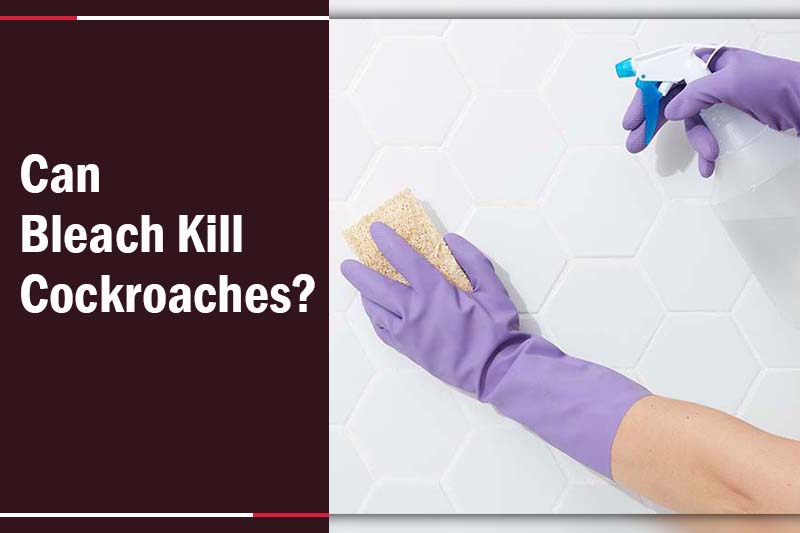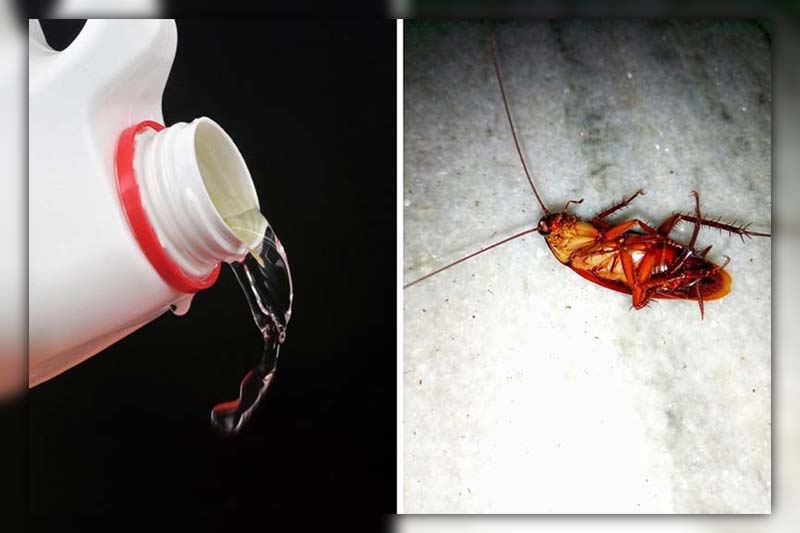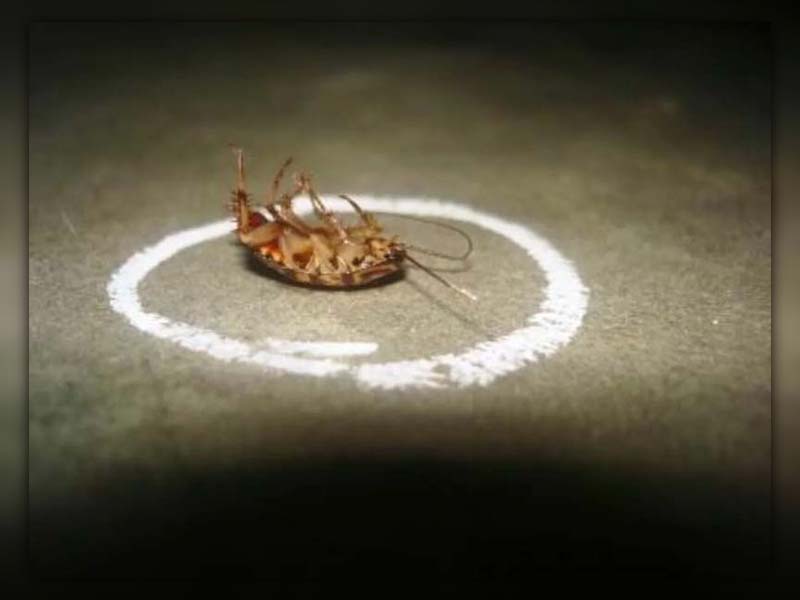If you’ve found yourself pondering, “Does bleach kill roaches?” or wondering about the best ways to utilize this household agent to bid adieu to these persistent pests, you’ve come to the right place.

1. Does Bleach Kill Roaches?
Yes, Bleach can indeed kill roaches, although it isn’t considered a highly effective insecticide for this purpose.
Nonetheless, it can be an option if used with proper safety precautions, especially when you’re looking for a short-term solution while exploring more efficient methods.
Bleach contains a composition of highly hazardous chemicals, capable of causing organ failure, internal bleeding, and even death in animals and humans upon consumption. Cockroaches, although quite resilient, are not exempt from these effects.

2. How to Use Bleach to repel Cockroaches?
Bleach can serve as an effective cockroach repellent due to its chlorine content, which is highly toxic to these pests. Here are several methods for using bleach to repel cockroaches:
- Sanitize your living space: Employ a bleach solution to thoroughly clean and sanitize your home. Cockroaches find the strong odor of bleach intolerable and will be compelled to leave.
- Directly spray bleach on cockroaches: Create a solution by mixing equal parts bleach and water. This mixture can be sprayed directly on cockroaches or applied into cracks and crevices where they commonly hide.
- Clean all food-related areas with a bleach and water solution: Cockroaches dislike the scent and will be discouraged from returning. Ensure that drains, pipes, and other damp, dark areas are wiped down with a bleach solution as well.
Read more How to Find Roach Nest and Get Rid of Them for Good.

3. Important considerations when using Bleach to repel cockroaches
- Use protective gear: Ensure the use of gloves and protective eyewear to shield your skin and eyes from potential splashes.
- Dilute bleach: It is crucial to dilute bleach with water before using it to eliminate roaches due to its strong chemical nature.
- Avoid mixing bleach with other chemicals: Combining bleach with other substances can produce hazardous fumes.
- Do not pour bleach down the drain: Refrain from disposing of bleach in drains, as it can corrode pipes and harm the environment.
Read more Do Ammonia kill roaches? Unmasking the Truth.
4. What Are The Drawbacks Of Using Bleach To Kill Roaches?
- Limited effectiveness: While bleach may kill some cockroaches, it is not a lasting solution for eradicating an entire infestation.
- Hazardous for pets and humans: Being a toxic chemical, bleach poses risks to both pets and humans if ingested or inhaled. Safety precautions must be taken when using bleach for roach control.
- Ineffectiveness on all roach species: Certain roach species exhibit higher resistance to bleach, rendering it less effective against them.
- Potential for surface damage: Due to its corrosive nature, bleach can cause damage to surfaces if not applied properly.
5. How to Prevent Cockroach Infestation with Bleach?
- Consistently clean your kitchen and bathroom spaces: After using dishes, ensure that you wash them thoroughly. Clear counters, tables, and sinks of any crumbs or remnants that could attract roaches.
- Cockroaches can infiltrate your living spaces through cracks and openings. Seal off gaps around baseboards, inside cabinets, and under cupboards using appropriate sealants like silicone or other adhesives.
- Identify and target areas where roaches are most likely to congregate. Apply bleach-based solutions strategically to deter roaches from these zones.
Read more Does dish soap kill cockroaches? How to Use It Effectively?
FAQ
Does Bleach kill Cockroach Eggs?
Yes, bleach is effective at killing cockroach eggs.
When using bleach for this purpose, remember to prioritize your safety by wearing gloves and a mask, as bleach can be harmful if accidentally ingested.
What Does Bleach Do to Roaches?
Bleach can indeed kill roaches upon direct contact.
However, a word of caution: spraying bleach up your drain can result in the emission of toxic fumes that might damage your drainage system over time.
What smells keep Roaches away?
Several scents act as roach repellents. Essential oils like peppermint oil, cedarwood oil, and cypress oil have been found to effectively deter cockroaches.
Roaches also dislike the aroma of crushed bay leaves, which can be used strategically to keep them at bay. Surprisingly, the scent of coffee is another smell that roaches avoid.
Read more Bay Leaves for Cockroaches: A Natural Repellent Guide.
Conclusion
In the quest to address roach infestations, the question “Does bleach kill roaches?” has illuminated both possibilities and precautions.
As you journey toward a roach-free home, consider exploring more insightful blogs from Pestweek.

Calina Mabel has over 15 years of experience in the field of journalism and communications. Currently, Calina Mabel is the Content Writer for categories such as Cockroach, Ants, Bed Bugs, Mosquito, Rodent, Termite, and Flies on Pestweek.com. She aims to build content for these categories with a focus on providing valuable and accessible information to readers, in order to create the world’s largest knowledge community about Pests.
All content written by Calina Mabel has been reviewed by Emily Carter.

